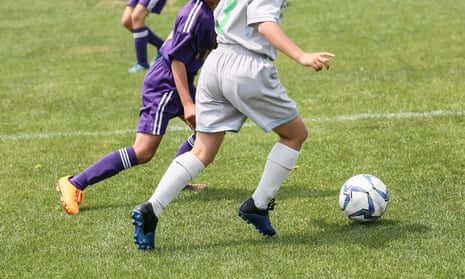Let’s be honest: it is not a good look, is it? A parent standing by the side of a pitch shouting at their young child during a football game. Yet it happens so often. In fact, it sometimes seems harder to find a youth game with well-behaved parents than with misbehaving ones.
In Sweden this year the main three Stockholm clubs suspected as much and asked for a survey into how prevalent this problem is and, more importantly, how it is affecting the children. The results were staggering.
It transpired that one in three children had considered quitting the game because of what the survey called “over-engaged” parents. Of the 1,016 adults who answered the survey, 83% said they had seen parents who were pushing their children too much or criticised young referees and officials loudly.
The three Stockholm clubs – Djurgarden, AIK and Hammarby, who had commissioned the survey together with Volkswagen – were appalled by the numbers and decided to act.
The clubs do not always see eye to eye (or at least their fans don’t) but they immediately joined forces to launch an initiative to combat the problem. They sat down together and came up with a short yet encompassing “football code” that they hope will lead to a change in behaviour by adults watching youth football.
The code reads as follows: “I, as a parent, will do everything I can to support my child, other children, club staff, referees and parents in training and at games – through a positive involvement.”
The response has been incredible. More than 1,600 parents have signed up to the code and more are doing so by the day. Parents have also asked the clubs to print the code on T-shirts so that the message can be shared more widely. Other top-flight clubs in Sweden have expressed an interest in joining the initiative.
And maybe, just maybe, the fact that three of the most high-profile clubs are behind this initiative will lead to a change in behaviour all over the country. The clubs’ players were keen to get involved too, with the AIK vice-captain, Stefan Ishizaki, saying: “In a child’s sporting environment joy always has to be the most important thing because if it is then they can carry them with them for the rest of their lives. The matches, the tournaments or training sessions where you get to spend time with your friends and do something you love.
“Football is passion. It is joy, sadness and all the emotions in between. Football is the most beautiful thing there is – and that is the way it should stay. So, let us all together make sure that our children get to experience this joy and all these feelings. It is about their memories and their experiences. Not ours.”
National and local media picked up the results of the survey, conducted by Survey Sampling International, with the Expressen journalist Patrick Ekwall hitting the nail on the head. “What is wrong with people?” he wrote. “That is the first question I ask myself when I find out the results of a new survey about footballing parents. What is wrong with adults who shout and yell at their eight-year-old or at a 14-year-old referee in a seven-a-side game? They are insane, that is what’s wrong.”
This is not a problem confined to Sweden: it is a worldwide matter that seems to be getting worse.
But to combat problems you have to start somewhere and that is exactly what the three Stockholm clubs have done. The initiative has gained momentum in Sweden and hopefully, by the end of the year, all the top-flight clubs will have signed up and perhaps, next year, most clubs in the country will adhere to the code.
And what is stopping a Premier League club, or a La Liga club from introducing and promoting a similar code? And then perhaps, step by step, we could move towards a world where young children can play football without being shouted at – or is that too much to ask?

Comments (…)
Sign in or create your Guardian account to join the discussion